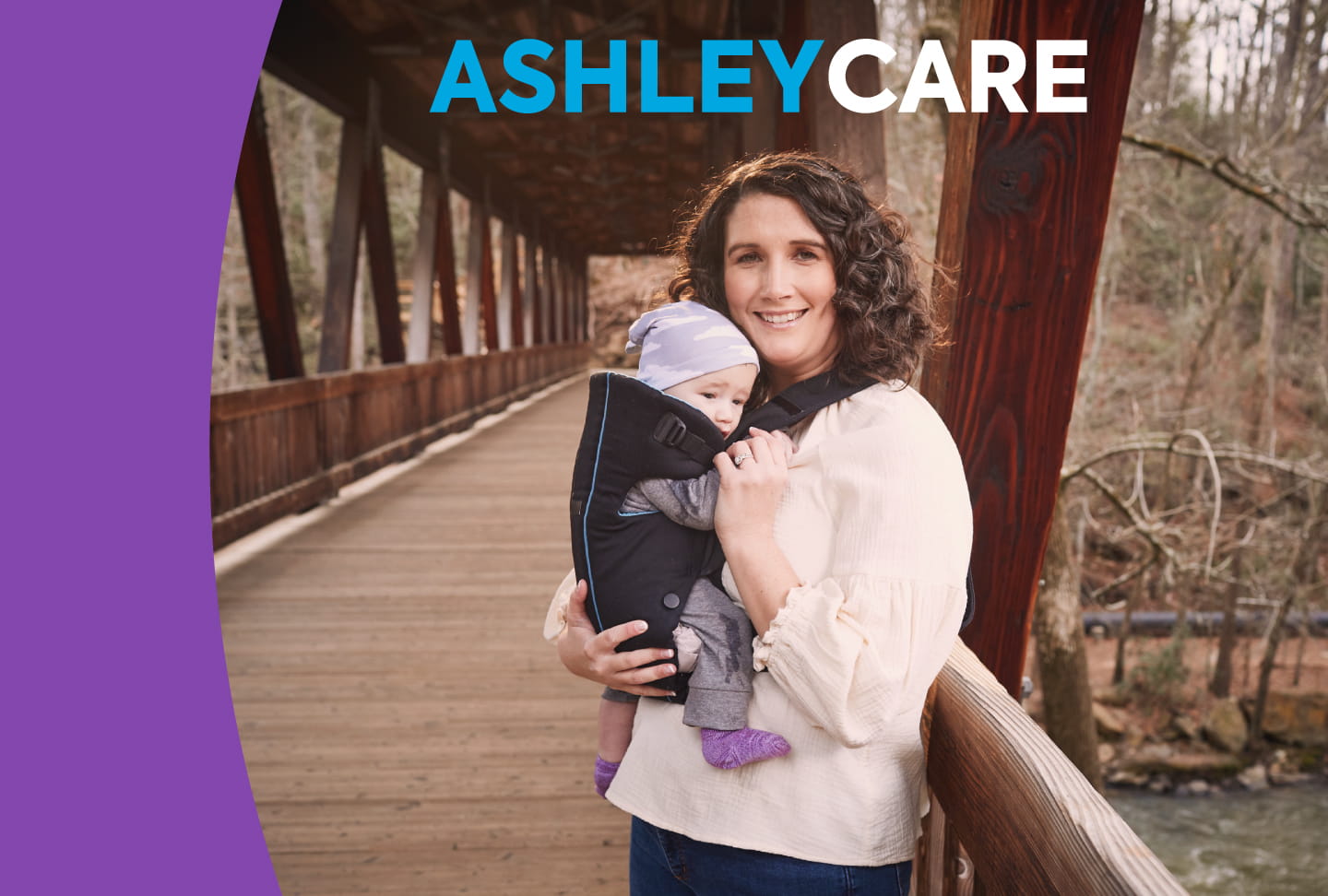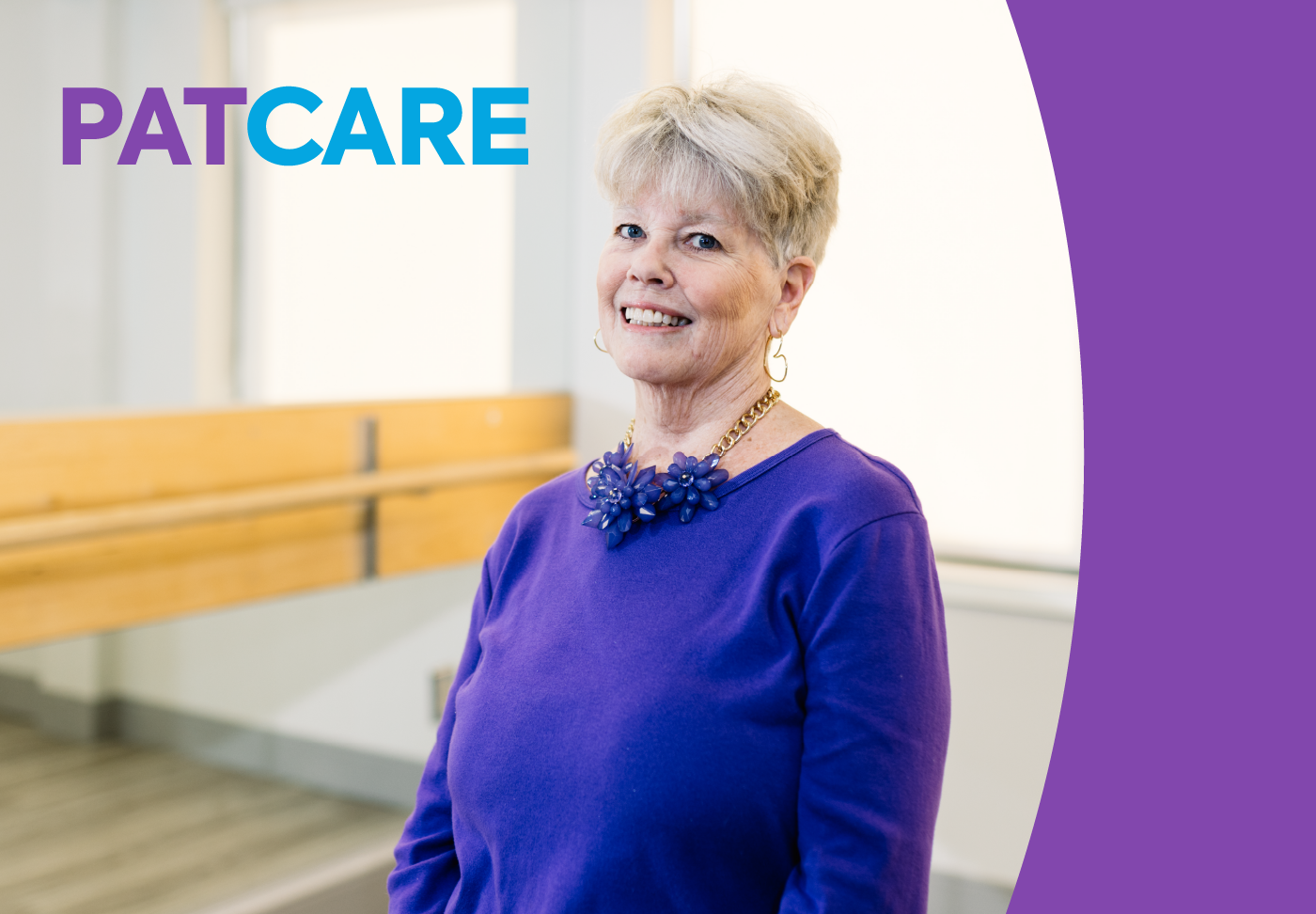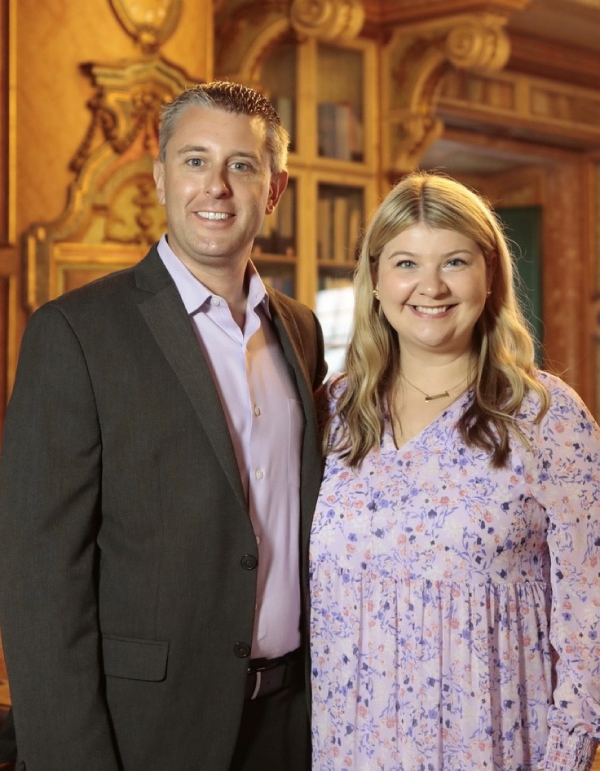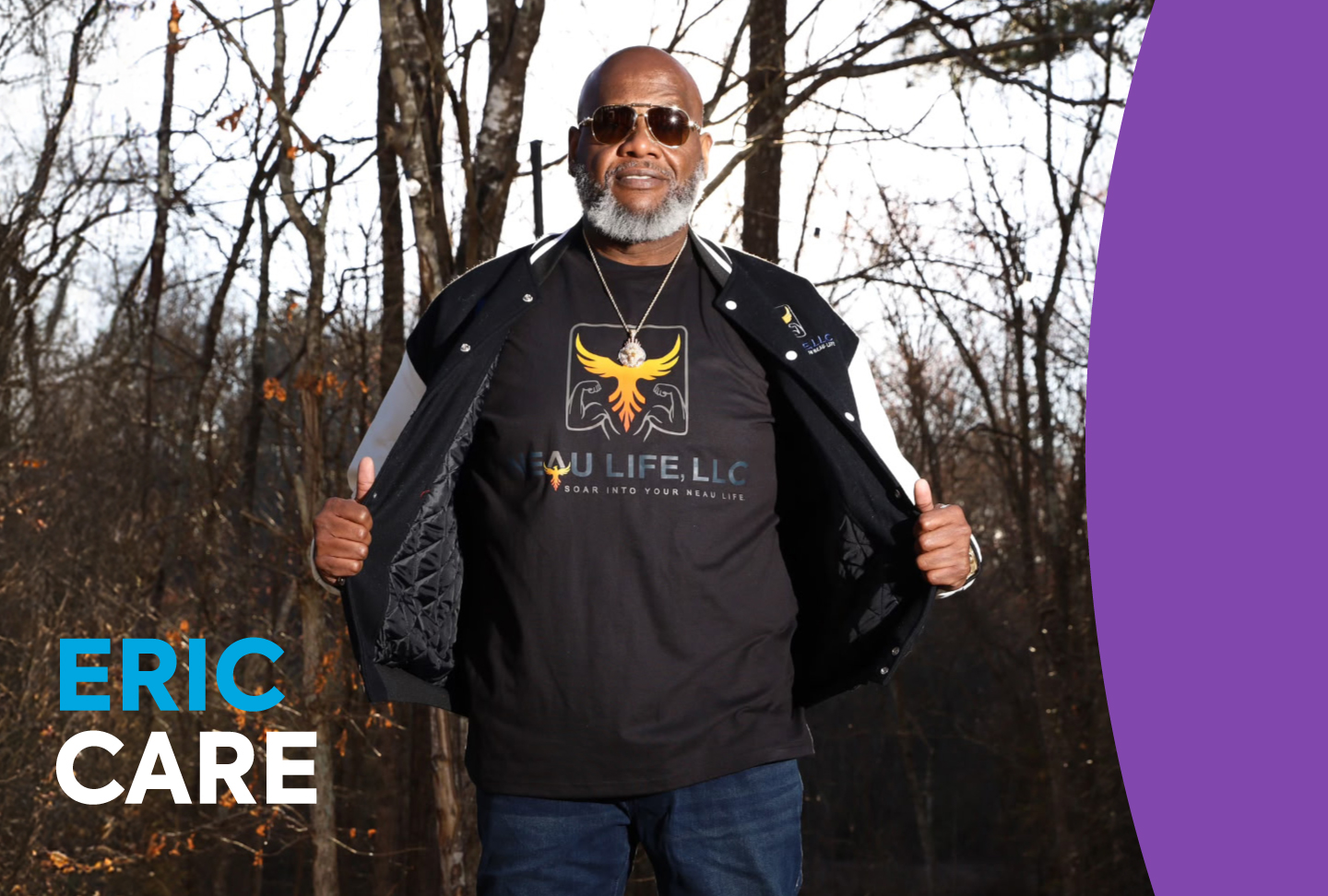September hasn't always been Ashley Irwin’s favorite month. Years ago, that time of year when the leaves changed into bright, warm colors held some of the darkest moments of her life.
In 2011, a 28-year-old Ashley was battling a particularly bad bout of Crohn’s disease, an inflammatory illness that can cause painful and often debilitating abdominal and bowel issues.
After the intense flare-up, Ashley was settling in at home again with the assistance of her mother. She was determined to regain her independence and get back on track.
But it wasn’t long before the sharp sensation of a migraine hit her full force. Pushing through the pain, she tried to check her email for any new messages, though it was nearly impossible to type in her username and password.
“As I sat in front of the computer, I couldn’t even remember my last name to log in to my email account—no matter how hard I tried,” Ashley recalled the terrifying moment.
Almost immediately, Ashley’s mother noticed her confusion, and stepped in to assess the situation and double-check her daughter’s cognitive abilities.
“My mom asked me, ‘Who am I? What’s my name?’ In my head, I knew she was my mother, but I just couldn’t connect the dots and express it,” Ashley said, describing her confusion and difficulty thinking. “At that moment, I couldn’t tell you her name or her relationship to me.”
Worried, the mother and daughter rushed to the Emergency Department at Wellstar Kennestone Regional Medical Center for immediate medical treatment. After being evaluated, it was clear that Ashley was dealing with much more than just a bad headache—she was having a stroke.
AshleyCare
Published on August 16, 2020
Last updated 03:46 PM August 21, 2020

Ashley in a park, holding her son Luke.
Any time a person experiences a stroke, the brain can have a very severe reaction. In Ashley’s case, her brain began to swell. If we didn’t address the issue immediately, the brain could end up ‘choking’ itself within the rigid confines of the skull.
- Dr. Joseph Hormes
Wellstar Neurologist
Listen to Ashley's Story
Emergency stroke care
After quickly being transferred to the Neuro Intensive Care Unit (ICU), Wellstar Neurologist Dr. Joseph Hormes was the first to evaluate her condition.“When Ashley was admitted to the hospital, she was dealing with a very complex neurological illness,” Dr. Hormes recalled. “Due to an unusual blood-clotting issue, she was experiencing a hemorrhagic stroke which caused life-threatening bleeding in her brain.”
Unlike more common ischemic strokes which are caused by a blocked artery in the brain, a hemorrhagic stroke occurs when a blood vessel in the brain leaks or ruptures. According to the American Stroke Association, hemorrhagic strokes account for just 13% of all stroke cases.
Even so, the Wellstar care team was prepared to handle the complex case. A team of physicians sprang into action, giving Ashley immediate care and closely monitoring the situation. However, after a few days in the hospital, Ashley’s condition wasn’t getting any better.
“Any time a person experiences a stroke, the brain can have a very severe reaction,” Dr. Hormes explained, “In Ashley’s case, her brain began to swell. If we didn’t address the issue immediately, the brain could end up ‘choking’ itself within the rigid confines of the skull.”
Dr. Hormes didn’t waste any time to save Ashley’s life.
“Right away, we assembled a team of expert physicians, including a neurologist, neurosurgeon, neurointensivist and hematologist, who all worked together to provide the best care possible for Ashley,” said Dr. Hormes.
As Ashley’s condition continued to deteriorate, her brain pressure reached a critical point. The physicians rushed her into emergency craniotomy surgery.
During the surgical procedure, a piece of Ashley’s skull—called a skull flap—was expertly removed to allow her brain to swell freely. The portion of skull was surgically implanted into her abdomen tissue to keep it viable for reimplantation. This method would allow her brain time to heal on its own without being hindered by the skull.
Dr. Hormes commented on how the dedicated team came together to save Ashley’s life.
“At Wellstar, medicine is not a one-person sport,” the neurologist said. “It takes a team effort to take care of our patients. To provide critical care and save lives, we must have the right specialists at the right time and the right place.”
With her Wellstar team behind her, Ashley made it through surgery and spent the next two weeks in a medically-induced coma so her brain could begin healing. However, Ashley’s path back to better health was just beginning.
Working towards recovery
After waking up from the induced coma, Ashley grappled with the reality of having had a stroke. At the time of the event, Ashley wasn’t even 30 years old, which made it even more difficult for her to deal with the diagnosis.“The word ‘stroke’ wasn’t even a part of my usual vocabulary,” Ashley said, addressing how the diagnosis was a total shock. “I always thought only older people could have strokes before I had mine.”
Unfortunately, strokes have no age limits—they can happen to anyone. While strokes are more common for the elderly, the American Stroke Association reports that people of all ages can experience a stroke, including children and infants.
While also juggling the emotional side effects of the stroke, it was a balancing act to keep her physical health in check. Finding the right mix of medication was tricky: many common medications used to treat strokes were the polar opposite treatments recommended to keep Ashley’s Crohn’s disease under control.
However, her care team took the challenges head-on with solutions that would address both conditions. “My Wellstar physicians were wonderful at finding the treatments that were most beneficial for treating the stroke, but wouldn’t send my Crohn’s into chaos,” Ashley said.
From there, weeks turned to months in the hospital as Ashley began working towards recovery. Along with the right medications, Ashley also dealt with other external factors that slowed her progress. From suffering an unexpected fall to developing an infection on her head wound, many challenges pushed back her surgery date to get her skull flap reattached.
“It was a long road with good days and bad days,” Ashley said, noting how her devoted care team made all the difference in her recovery.
Then in January, several months after being admitted to the hospital, Ashley underwent surgery to reattach her skull. After the successful procedure, Ashley made it her mission to be home before the next major holiday.
“My nurses promised me I wouldn’t end up spending Valentine’s Day in the hospital,” Ashley recalled the special memory. “They worked so hard to make sure everything aligned so I could be home. In the end, I was discharged on February 13th — just in time for the holiday.”
After months in the hospital, Ashley was finally home. However, she still had both physical and mental hurdles to work through. After being declared a fall risk, she had to temporarily move back in with her parents for constant monitoring.
“At that time, I couldn’t be left alone,” Ashley said, remembering the difficult start of her recovery. “It was really hard. I was so delicate physically, but I still felt like an active 28-year-old in my mind.”
Soon, Ashley was cleared to start stroke rehabilitation which was a big step in recovery. She harnessed the strength and determination to move forward step by step, focusing on physical therapy to improve her mobility.
“My friends and family were very encouraging with physical therapy,” Ashley said, remembering how she used the extra inspiration to fuel her physical recovery.
But it wasn’t just her relatives that helped her have a positive mindset. Ashley found a new family of Wellstar physicians that motivated her along the way.
“Through physical rehabilitation, my physicians helped me realize that I could live a fulfilling life after having a stroke,” Ashley smiled. “I didn’t want to sit on the sidelines and watch life happen around me. I wasn’t going to let my medical episode set me back.”
New beginnings
Through the years, Ashley diligently stayed on her wellness journey and settled into a new normal.According to the American Stroke Association, people who have experienced one stroke have a much higher risk of experiencing another event in the future. With this in mind, she regularly saw Dr. Hormes to help manage her health and prevent another stroke.
Almost eight years after her stroke, Ashley got some joyous news. She and her husband were going to have a baby, and along with the elation and promise of new life came a pang of uncertainty.
“When I got pregnant, Dr. Hormes was one of the first physicians I texted,” Ashley said, noting the excellent patient relationship she has formed with the neurologist. “After having a stroke years ago, I was nervous about the pregnancy and wanted to make sure everything would be okay.”
For Ashley, becoming pregnant was nothing short of a miracle.
“For years, having a child was always up in the air. I was never sure if I would be able to have a child safely or if it would happen,” Ashley explained.
With her medical history, she was considered a high-risk pregnancy and would need constant monitoring until she gave birth. However, there was no doubt in her mind that her child would be born at Wellstar Kennestone Regional Medical Center.
“From the beginning, Wellstar was the place I had always received care. In fact, I was even born at Kennestone Hospital,” Ashley said.
Keeping everything in the same healthcare family had many benefits and made it easier when it came to her regular medical appointments.
“After my stroke and pregnancy years later, it was very comforting that Wellstar knew my medical history and had all of my records in their system,” Ashley said. “I didn’t have to rehash my entire medical episode at every appointment—they had all of the information right there at their fingertips.”
From September to September
For Ashley, Wellstar’s patient-centered care approach made her entire pregnancy easier.Along with constant communication and support from Dr. Hormes, she had a total of five physicians providing coordinated care and closely monitoring her condition throughout the pregnancy. Nine months later, she welcomed a healthy baby boy into the world the very same month she had experienced a stroke eight years before.
“September used to be a very dark month for me. I would almost get lost in the memories of my stroke during that time of year,” Ashley said, remembering the troubling time. “But September became my brightest month ever, once my baby Luke was born.”
The birth brought peace and hope to the new mother, helping to put life into perspective. Now, Ashley has focused her energy on keeping a positive outlook for whatever comes her way.
“Getting through a stroke was a hard struggle. Some days, everything seemed negative, like the world was crashing down around me,” Ashley said, explaining her darkest moments.
“Now, I like to celebrate the little things,” she continued. “After Luke’s birth, September became a time to celebrate new life and new beginnings. Through everything over the past few years, I learned to pick myself up from the dust and keep going.”
Every step of the way, Ashley learned to rely on Wellstar for continued care. Dr. Hormes, who had been with Ashley from the beginning, was delighted at her progress.
“The most rewarding part of my work is healing patients,” Dr. Hormes beamed. “When patients like Ashley visit me after they’ve recovered or start new chapters in life, it’s the best paycheck I could ever get.”
As a mother and stroke survivor, Ashley encourages everyone to take charge of their wellness throughout their life.
“You have to be your own health advocate,” she said. “You are your greatest supporter because nobody’s going to speak up louder or stronger than you.”
Through it all, Ashley credited Wellstar with helping her through all her health hurdles and triumphs.
“Wellstar has always been there for me, from my birth to my stroke to the birth of my son,” Ashley said. “They saved my life—and then helped me bring new life into the world. Today, I’m in such a great place because of Wellstar.”




